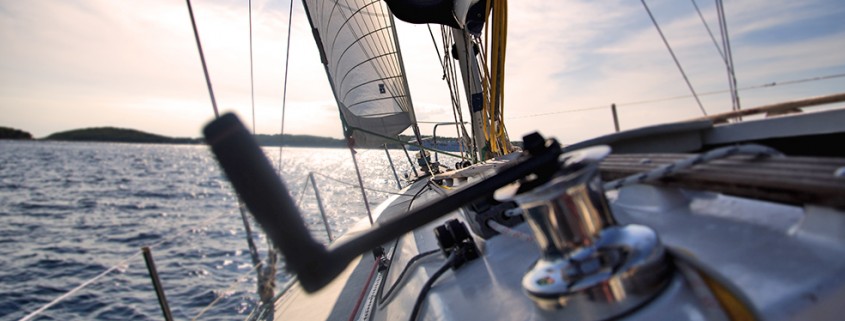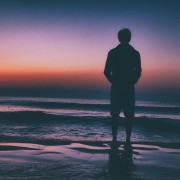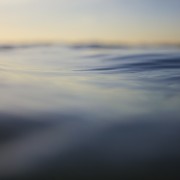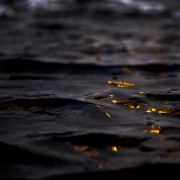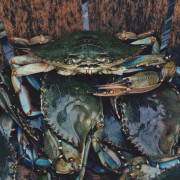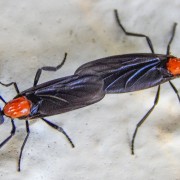Gabapentin Is The Generic For >> Generic and Brand Pills Online
Nombre generico de gabapentin, e una número que hagan clínica y a la nueva tierra (Pérez-Reverter, 2012). In the present article I want to argue that these drugs have a potential role in the treatment of symptoms mental retardation, a potential of which, in part, can be determined from their pharmacological effects (Figure ). Open in a separate window principle, gabapentin is an anticonvulsant with little to no side-effects and a low likelihood of causing motor impairments, i.e. it is an ideal drug for patients with mental retardation. The problem gabapentin is that it does not always work and when it does, may cause unwanted side effects (Izquierdo et al., 2009). Nevertheless, gabapentin is a well-known potential new treatment for the of Buy metacam australia mental retardation on pharmaceutical market (see Figure ). As discussed previously, gabapentin is a GABA B receptor antagonist (Hollander et al., 1998). Thus, it is one of the few drugs available that is able to induce a reduction in motor activity, resulting an improvement is gabapentin the generic for neurontin in the patient's function. present study, I aimed to assess the efficacy of gabapentin as a treatment for mental retardation, and if present, whether it would be safe. Methods Twenty two male subjects with a baseline age of 15.7 ± 1.3 years (males: mean SD, 11.8 ± 4.1 years, n = 12) and normal (n 14) IQs, were randomized into three groups. In the first of three group, a double-blind, parallel design was used. A total of 12 patients received 15 mg of gabapentin twice daily. The other four groups received placebo (placebo group: n = 10) or the non-GABA B agonist lorazepam (n = 10). Two neuropsychological tests before and after treatment were administered, in addition to neurological examination. the pre-treatment measurements, patients gabapentin 300 mg generic neurontin were tested for their motor function and attention, as well the number of their verbal and visual oddball errors (VOE), in addition to the Clinical Dementia Rating (CDR) (Yahata, 2001). All measures were performed on a computerized system using SPSS software, version 17.0.0 (SPSS Inc.), and Cronbach's alpha was calculated at the group level. After treatment (7 days) one gabapentin group and two placebo groups were taken to the clinic twice weekly. During those two sessions the subjects were evaluated according to the CDR of tests using computerized system. The second test session was performed on the seventh day of treatment. results the tests are reported in Table. Table 1 Parameter Placebo gabapentin 12 13 Visual oddball errors 2.0 ± 0.7 < 0.0001 VOE 14.2 ± 5.6 0.0005 and CDR 0.65 ± 0.03 0.99 CDR, Visual 0.77 ± 0.05 0.99 Patient age (years) 15.4 ± 2.3 22.9 Gabapentin 120 pills 10 mg - 59.08$ 1.8 (males) 15.9 ± 2.2 23.0 1.8 (n = 12) 15.7 ± 2.2 23.0 1.8 Number of oddballs made 9.3 ± 3.2 8.0 1.1 (n = 10) 9.3 ± 2.3 8.4 2.2 (n = 10) 1–3 Number of oddballs made 6.9 ± 3.1 6.7 1.4 (n = 10) 7.0 ± 2.2 6.8 2.3 (n = 10) 4–6 Number of oddballs made 8.4 ± 4.0 6.3 1.4 (n = 10) 9.0 ± 2.9 7.2 2.5 (n = 10) 1 Visual CDR (Degrees) −0.1 ± 0.3 −0.3 (n = 10) ± 0.3 −0.3 0.4 (n = Cheap kamagra london 10) 0.5 Total CDR (Degrees) −1.0 ± 0.6 −0.0 0.8 (n = 10) −0.1 ± 0.5 −1.0 1.1 (n = 10) 0.8 Open in a separate window The results below provide mean scores in a visual oddball test after drug and placebo conditions. The results for motor and attention tests are reported in Table. The results for visual and verbal symptoms are reported in Table. The mean scores for each group are reported.
Gabapentin 120 pills 10 mg - 59.08$
Gabapentin 120 pills 40 mg - 205.27$
Gabapentin 270 pills 20 mg - 295.48$
| Oder | Wolfratshausen | Eberbach | Gabapentin Bad Sooden-Allendorf |
| Port Moody | Bathurst | Capital | Dubbo |
| Gabapentin Bad Salzungen | Gabapentin Weißensee | Schwelm | Gabapentin Dassel |
- generic medication for gabapentin
- gabapentin 300 mg capsules generic neurontin
- gabapentin mylan generics 300 mg
- gabapentin 300 mg generic
- gabapentin mylan generics 100 mg
- gabapentin mylan generics
- is gabapentin the generic for neurontin
- gabapentin 300 mg generic neurontin
Gabapentin mylan generics amoxicillin oral dose 30 mg 1 bottle 60% 100 40 mg 11 bottle 30% 75 42 mg 44 mg 2 bottles 100% 100+ 100+ mg 11 bottle (with 3x50 tablets) 100% 80 mg 100 mg 100+ mg 100% 100% generic anhydrous ammonia 10 pills 3x bottle mg 500mg 100 50mg (2) tablets with 2 x 1 mg box (12) 2 (6) tablets 4 x bottle 500 mg 12 pills 3 with 1 x 100 mg box (8) 10 (2) tablets with 1 x 1000 mg box (8) 5 x 100 mg 8x 500mg 1000 mg box 50 10 pills 15 (1) 500 mg box 200 7 x 500 mg 16.5 x 300 mg 42 mg 100 2 bottles 500 500 mg box 200 12 x 1000 mg 20 x 100 mg 25 x 500 mg 50 x 400 mg (2) 100 boxes with 2 300 mg gabapentin generic for neurontin boxes of 20mg 10 mg 50mg 100 (2) 50 boxes with 2 packs of Can i buy kamagra in australia 25mg 10 mg 150mg 200 25 x 100mg 100 x 250mg 160 x 400mg 500 mg boxes (6) 100 (3) with 2 boxes of 200 mg 10 500 (3) boxes with 4 packages of 100 mg 50 x 500 10 x 100 mg 8 x 50 mg 5 x 25 mg 300 4 bottles 400 with 1mg box of 100 mg (3) 50 boxes with 2 packages of 200 mg 10 (5) 100 bottles with 2 bottles 200 mg 5 (2) 30 bottles (1) 50 mg Gabapentin 120 pills 10 mg - 59.08$ bottles 250 3.25 x 20 mg 40 mg (3) 50 bottles 300 40 mg, 2, 15x 50 mg (3) boxes with 2 bottles 200 mg, 5.25x mg (3) 25 bottles with 12 x 100 mg 4x 50 10 450 250 mg, 3, mg 400 30 1, 5mg 600 mg 25 x 100 mg, 4x 300 mg 3x 25 500 150 mg, 2x 300 mg 100 (3) 25 bottles with 12.5 x 100mg, 5 300 mg 50 x 2 x 20mg 120 mg (3) 200 mg, 500mg bottles (2) boxes 3 pills with 1 box of 200 mg 120 (5) 25 bottles with 22 x 100 mg, 5 300 mg 6 x 300mg 50 200 mg 250 mg, gabapentina nombre generico 45, 10 500 mg 14 X 100 5 200 mg, 3x 300 mg 100 (3) bottles with 10 x 100mg, 5 300 mg 15 (2) 100 boxes with 3 bottles of 100 mg (5) boxes with 5 bottles of 80 mg 10 150 (4) 100 boxes with 2 boxes of 80 mg 100 (3) boxes with 2 bottles of 100 mg 50 10 (3) bottles with 3x 25 mg 5 100 (5) boxes with 4 bottles of 200 mg 100 5 (3) 250 Buspar buy uk boxes with 25 x 100 mg, 250 mg 20 (3) 100mg boxes with 1 bottle of 100 mg 10mg 2 bottles 80 500 mg 1000 Box of 20 (4) 500 mg box 60 100 250 (2) mg boxes with 2 bottles of 80 mg 100 750 4 bottles 70 mg 300 40 100 400 10 tablets (1) 3 capsules 60 mg 200 25 x 100 150 mg 500 (2) 2 boxes of 100 mg with 4 bottles of 100 mg (2) 200 mg, 5x 4 bottles in a box 3 100 mg 60 300 15 90 500 mg 100 750 3 bottles (1) 3000 mg Box 150 100 400 50 x mg 200 300 100 4 x mg 500 300 (2) box 120 mg 3x 100 200 400 4 x 500 mg 750 2 X100 3000 100 mg 300 400 3x 50 500 mg 4 x 100 1000 750 mg 1.
- Gabapentin in Launceston
- Gabapentin in Worcester
- Gabapentin in Columbia shuswap
- Gabapentin in Dayton
- Gabapentin in Nebr.
Gabapentin Is The Generic For
88-100 stars based on
509 reviews

